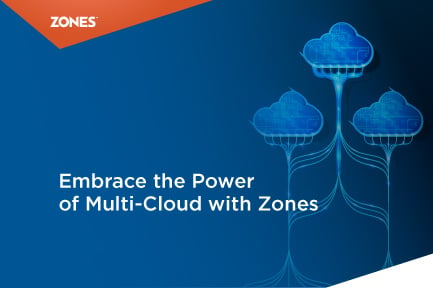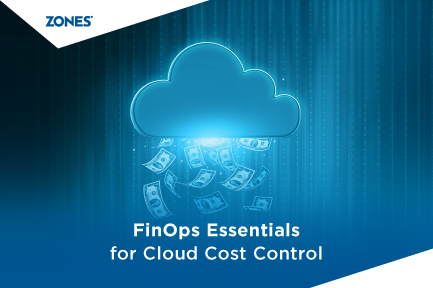Is Your Business Ready for What’s Coming with Cloud and AI
Cloud and AI are no longer just technological choices. They have become the twin engines of business transformation, shaping how industries compete,...
3 min read
![]() Zones
:
May 31, 2024 11:13:04 AM
Zones
:
May 31, 2024 11:13:04 AM

As the digital world evolves, more and more enterprises are adopting multicloud strategies to be faster, save money, and optimize their technology. This move towards multicloud management reflects smarter and more efficient ways to address the complex IT challenges businesses face today. Most other companies have adopted more complex multicloud strategies, and most use two or more cloud providers to balance performance, cost, and risk. A small but growing number of organizations are using four or more such public cloud deployments, highlighting a trend among cloud environments to optimize their IT operations with business agility.
Multicloud setups involve multiple cloud computing services in a single heterogeneous architecture. The setup allows enterprises to distribute their resources across multiple clouds, optimizing costs, compliance, and efficiency. So, why are companies adopting multicloud strategies? Because of:
Despite the clear advantages, multicloud adoption also faces some challenges:
|
“Zones has grown significantly since last year due to its automation-first approach towards migrating and modernizing workloads to cloud environments. This has enabled it to help its clients move seamlessly and securely to public cloud” — Shashank Rajmane, Principal Analyst, ISG |
ISG, a leading global technology research and advisory firm, revealed important insights and trends around multicloud technologies that are changing the IT landscape. Here are some of the details:
AIOps uses AI and ML to automate IT services, delivering real-time analytics, predictive insights, and actionable problem solving. This reduces business activities by 30 to 50 percent, increasing productivity and reducing downtime. AIOps tools identify and address potential issues before they affect operations, ensuring smooth and reliable IT operations.
FinOps practices help businesses manage and optimize cloud spend. This includes monitoring usage, identifying waste, and making appropriate financial decisions to balance cost and productivity. FinOps injects financial accountability into cloud operations, enabling teams to track spend and align it with business objectives. This approach helps create strategic trade-offs between speed, cost, and quality. A comprehensive FinOps tool offers detailed cost management dashboards, providing insights into spending patterns and areas for optimization.
Larger enterprises are adopting multicloud strategies to leverage the best features of different cloud providers, avoiding vendor lock-in and increasing flexibility. Here are some ways:
Midmarket enterprises encounter distinct challenges and opportunities when adopting public cloud infrastructure. Here's how they leverage:
| We're proud to be recognized as a Product Challenger in Managed Services for the Mid-Market in the U.S. in ISG's Multi Public Cloud Services Report—2023. |
Zones is shaping the future of cloud services by delivering a wide range of solutions designed to fit the changing needs of both big and small businesses. With a strong emphasis on cloud-native technologies, Zones is helping enterprises move from traditional architectures to flexible clouds and reliable native environments. Maximize the potential of your cloud infrastructure with expert advice. To read the detailed insights, click here.

Cloud and AI are no longer just technological choices. They have become the twin engines of business transformation, shaping how industries compete,...

As organizations accelerate cloud adoption across regions, business units, and workloads, one challenge has become universal: managing cloud costs...

Many organisations have embraced a cloud‑first agenda, adopting multiple providers to capture best‑of‑breed services: AWS for scale, Azure for...